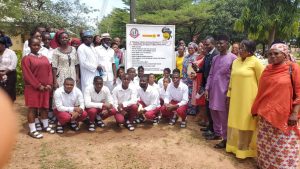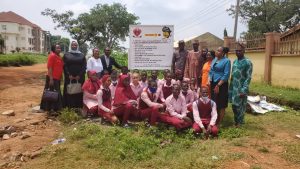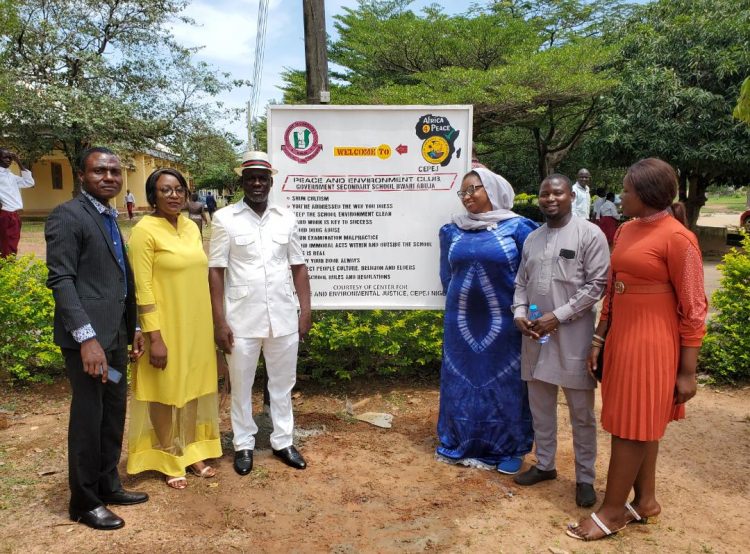A leading Nigerian civil society organisation, Center for Peace and Environmental Justice, CEPEJ, has inaugurated Peace and Environment Clubs (PECs) in over 15 secondary schools in the country.
CEPEJ has the mandate to promote peace whilst advocating for environmental best practices among young ones for a better society.
The most recent PECs were established in Abuja, the Federal Capital Territory, FCT to serve as “safe spaces” with the idea of catching them young and bringing the next generation together from different social and cultural backgrounds to discuss critical issues, especially those relating to peace, conflict prevention/management and environmental sustainability, as well as share values of tolerance and civic responsibility.


The general principle of the PEC is to bring about a change in awareness and thought patterns that will transform the behaviour of young Nigerians. This will result in young people imbibing values of mutual respect, fairness, teamwork, discipline and tolerance, which will, in turn, result in a society that values peace and environmental best practices as a state of mind, value, norm and a way of life (culture).
The National Coordinator and CEO of CEPEJ, Comrade Mulade Sheriff thanked and appreciated the FCT Board for the partnership to enable the NGO to establish the Peace and Environment Clubs and to inaugurate PEC Coordinators for Government Senior Secondary School, Bwari, and Mabushi Secondary School, both in Abuja.
FCT secondary school Board Chairman, Hon. Yahaya Musa Muhammed, who was represented by Assistant Directors, Mr Itam Nneoyi and Mrs Mary Ajibola, appreciated CEPEJ for the laudable initiative and pledged to work with the CSO to educate and guide the youths in the ways of life.
For their parts, the Principal of Government Secondary School, Bwari, Dr Mrs Nse Martina Ikwo, and Principal of Government Secondary School, Mabushi, Mr Muhammed Shaba thanked CEPEJ for establishing the Peace Clubs to educate students on the need to imbibe the culture of peace and environmental protection, highly needed in Nigeria today as a result of the prevailing challenges.
They promised to ensure the sustainability of the clubs.
The Programme Director of CEPEJ, Mrs Nafisat Amadu Abdulmalik listed the following as the expected outcomes of the clubs:
1. Improved life skills (leadership, negotiation, decision making, values, self-esteem, conflict management etc.) in young persons and other beneficiaries;
2. Enhanced advocacy skills – speaking up for self and for others;
3. Young persons to have the confidence to participate in decision making;
4. Improved knowledge about entitlements and rights.
She said CEPEJ would facilitate Training the Trainers Workshops in the coming weeks before the activities would kick off fully. Others in attendance included Vice Principals, administrative staff, as well as senior teachers and students.












